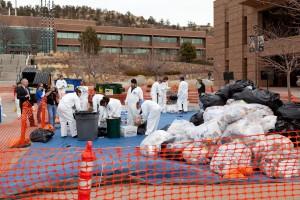 Surrounded by orange construction fence and braving gusts that made standing downwind from rotting garbage impossible, 35 students, faculty and staff members poured through a day’s worth of campus trash Wednesday in search of items that could have been recycled.
Surrounded by orange construction fence and braving gusts that made standing downwind from rotting garbage impossible, 35 students, faculty and staff members poured through a day’s worth of campus trash Wednesday in search of items that could have been recycled.
The activity was part of RecycleMania, a nationwide competition among colleges and universities to determine which can recycle the most materials and reduce their waste streams.
Facilities Services brought a day’s worth of campus trash –more than 1,400 pounds — to El Pomar Center Plaza to help the Office of Sustainability prove a point. More than half of what ends up in the campus waste stream headed to the landfill could have been recycled or composted. UCCS has a current recycling rate of 37 percent. The goal is to get to 50 percent within the next year, according to Linda Kogan, director, Office of Sustainability.
Recycling saves energy, prevents pollution in landfills, and reduces greenhouse gas emissions. It takes 95 percent more energy to create a new aluminum can than it does to produce one from a recycled can. Aluminum can be infinitely recycled.
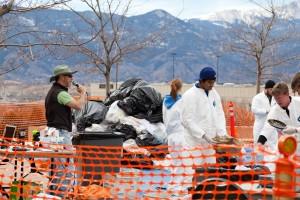 On Wednesday, Carole Huber, senior instructor, Geography and Environmental Studies, neatly assembled her finds of Campbell’s soup cans, a brightly decorated cardboard birthday box, and a nearly full, unused roll of toilet paper before discovering a mother lode.
On Wednesday, Carole Huber, senior instructor, Geography and Environmental Studies, neatly assembled her finds of Campbell’s soup cans, a brightly decorated cardboard birthday box, and a nearly full, unused roll of toilet paper before discovering a mother lode.
“Look at that,” Huber exclaimed as she retrieved five unopened sacks of bread from a trash bag headed to the landfill.
She held bags of buns and sliced bread high, showing off her prize like a fisherman might display a freshly caught river trout, as Kevin Gilford, assistant director, Office of Sustainability explained the next step for the stale slices.
The bread won’t be recycled in the same way as cans, bottles and paper. Instead, the bread was added to a pile of food and other biodegradable items that will be composted and become fertilizer.
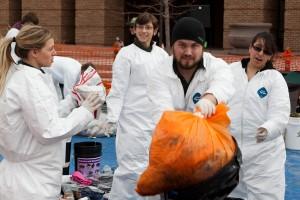 The compost program is new this year, according to Kogan. For weeks, student volunteers have helped patrons of campus eateries determine what from their plates can either be recycled or composted. New to campus are green ware plastic cups, forks and knives that, in addition to half-eaten sandwiches, can be composted. Composting is being piloted at the University Center, the Lodge, and the Family Development Center. If successful, the Office of Sustainability will extend composting to other campus locations.
The compost program is new this year, according to Kogan. For weeks, student volunteers have helped patrons of campus eateries determine what from their plates can either be recycled or composted. New to campus are green ware plastic cups, forks and knives that, in addition to half-eaten sandwiches, can be composted. Composting is being piloted at the University Center, the Lodge, and the Family Development Center. If successful, the Office of Sustainability will extend composting to other campus locations.
Organic materials in landfills produce methane, a greenhouse gas that is approximately 22 times more potent that carbon dioxide. Composting helps to prevent emissions of methane and produces a fertilizer that can be used to improve soil.
“Our goal is to reduce, reuse, and then recycle. This year, we are diverting more material from the landfill than last year. However, we still have significant work ahead to reduce our waste stream and to educate every member of the campus to properly separate their waste.” Kogan said.
For more information about recylcing, visit http://www.uccs.edu/~sustain/
— Photos by Jeff Foster, University Advancement

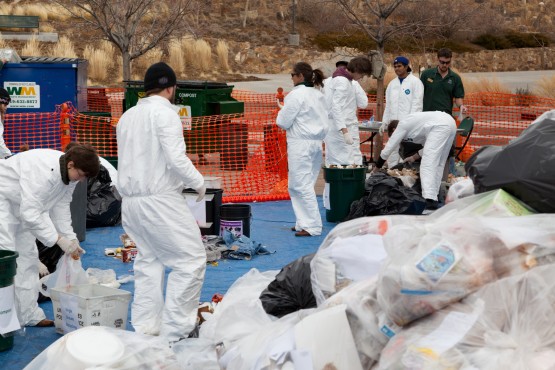
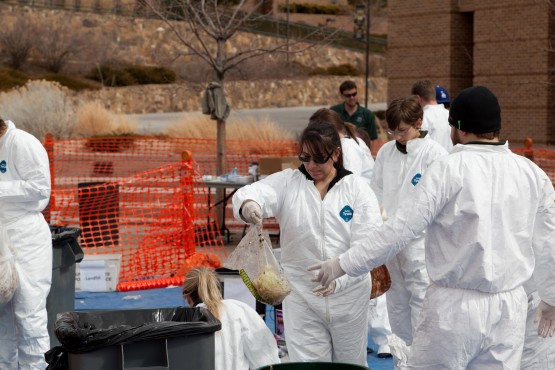
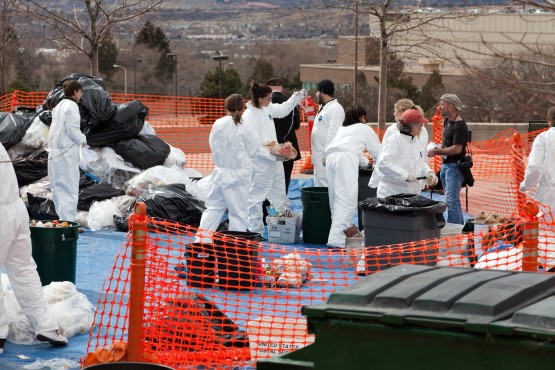
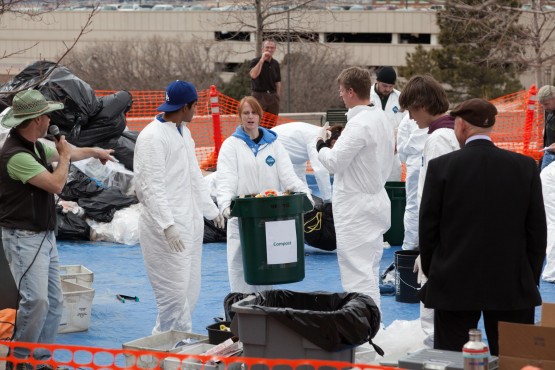
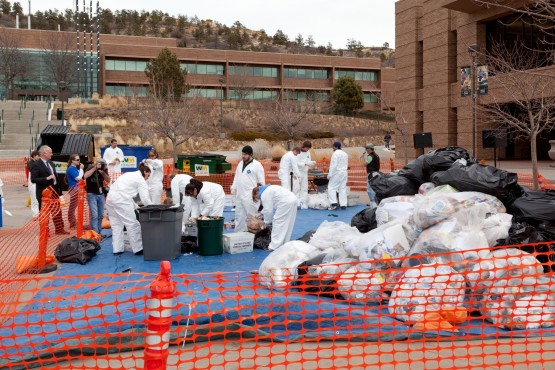
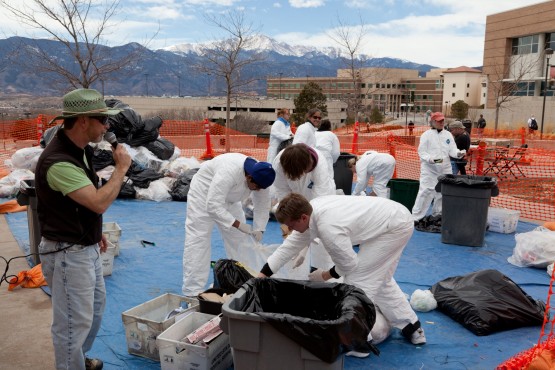
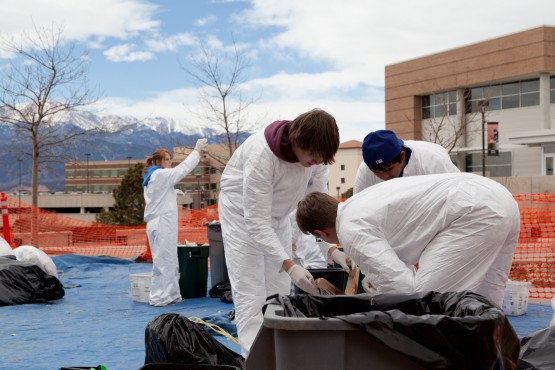
Leave a Reply